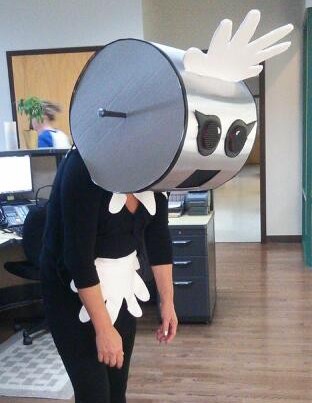If we our species or some version of it persists long enough, conscious machines will be possible–probable, even. We’ll ultimately pull apart the vast mystery of the human brain, and unlocking those secrets will begin us on a path to making machines that are SMART, not just smart. It’s worth pursuing a Big Data workaround, a shortcut to superintelligence, but that seems less a sure thing.
In an Edge interview, psychologist Gary Marcus is concerned that the brute force of Big Data may be leading us astray in the search for Artificial Intelligence. If you recall, in late January the NYU psychologist argued the DeepMind AlphaGo system was overhyped, but by March he was proven wrong. His other questions about our ability to widely apply such an AI remain unsettled, however. Marcus feels particularly strongly that driverless cars will be hampered by real-world uncertainty.
From Edge:
If you’re talking about having a robot in your home—I’m still dreaming of Rosie the robot that’s going to take care of my domestic situation—you can’t afford for it to make mistakes. The DeepMind system is very much about trial and error on an enormous scale. If you have a robot at home, you can’t have it run into your furniture too many times. You don’t want it to put your cat in the dishwasher even once. You can’t get the same scale of data. If you’re talking about a robot in a real-world environment, you need for it to learn things quickly from small amounts of data.
The other thing is that in the Atari system, it might not be immediately obvious, but you have eighteen choices at any given moment. There are eight directions in which you can move your joystick or not move it, and you multiply that by either you press the fire button or you don’t. You get eighteen choices. In the real world, you often have infinite choices, or at least a vast number of choices. If you have only eighteen, you can explore: If I do this one, then I do this one, then I do this one—what’s my score? How about if I change this one? How about if I change that one?
If you’re talking about a robot that could go anywhere in the room or lift anything or carry anything or press any button, you just can’t do the same brute force search of what’s going on. We lack for techniques that are able to do better than just these kinds of brute force things. All of this apparent progress is being driven by the ability to use brute force techniques on a scale we’ve never used before. That originally drove Deep Blue for chess and the Atari game system stuff. It’s driven most of what people are excited about. At the same time, it’s not extendable to the real world if you’re talking about domestic robots in the home or driving in the streets.•
Tags: Gary Marcus

